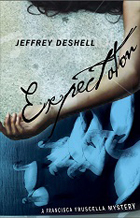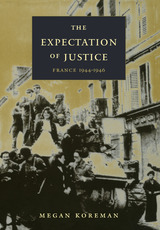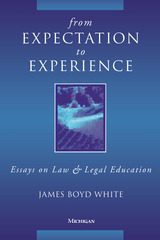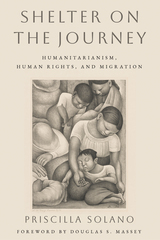3 books about Expectation

Expectation
A Francesca Fruscella Mystery
Jeffrey DeShell
University of Alabama Press, 2013
On the surface a murder mystery—a detective’s search for the killer of five people in Denver—Expectation is also, among other things, a meditation on the relationship between language and music.
In his newest novel, Jeffrey DeShell draws on the musical innovations of Arnold Schoenberg—by turns traditional, serial, and atonal—to inform his grammar and language. Moving progressively through specific Schoenberg compositions, DeShell complicates the surface of his text into lyrical derivatives, all the while drawing us into a murder mystery like no other as Detective Francisca Fruscella pursues both the killer and her own complicated personal history.
By turns rapturous, rigorous, and gripping, Expectation is a thriller of another kind—and a bold venture to the limits of the mystery genre and language itself.
In his newest novel, Jeffrey DeShell draws on the musical innovations of Arnold Schoenberg—by turns traditional, serial, and atonal—to inform his grammar and language. Moving progressively through specific Schoenberg compositions, DeShell complicates the surface of his text into lyrical derivatives, all the while drawing us into a murder mystery like no other as Detective Francisca Fruscella pursues both the killer and her own complicated personal history.
By turns rapturous, rigorous, and gripping, Expectation is a thriller of another kind—and a bold venture to the limits of the mystery genre and language itself.
[more]

The Expectation of Justice
France, 1944–1946
Megan Koreman
Duke University Press, 2000
In The Expectation of Justice Megan Koreman traces the experiences of three small French towns during the troubled months of the Provisional Government following the Liberation in 1944. Her descriptions of the towns’ different wartime and postwar experiences contribute to a fresh depiction of mid-century France and illustrate the failure of the postwar government to adequately serve the interests of justice.
As the first social history of the “après -Libération” period from the perspective of ordinary people, Koreman’s study reveals how citizens of these towns expected legal, social, and honorary justice—such as punishment for collaborators, fair food distribution, and formal commemoration of patriots, both living and dead. Although the French expected the Resistance’s Provisional Government to act according to local understandings of justice, its policies often violated local sensibilities by instead pursuing national considerations. Koreman assesses both the citizens’ eventual disillusionment and the social costs of the “Resistencialist myth” propagated by the de Gaulle government in an effort to hold together the fragmented postwar nation. She also suggests that the local demands for justice created by World War II were stifled by the Cold War, since many people in France feared that open opposition to the government would lead to a Communist takeover. This pattern of nationally instituted denial and suppression made it difficult for citizens to deal effectively with memories of wartime suffering and collaborationist betrayal. Now, with the end of the Cold War, says Koreman, memories of postwar injustices are resurfacing, and there is renewed interest in witnessing just and deserved closure.
This social history of memory and reconstruction will engage those interested in history, war and peace issues, contemporary Europe, and the twentieth century.
As the first social history of the “après -Libération” period from the perspective of ordinary people, Koreman’s study reveals how citizens of these towns expected legal, social, and honorary justice—such as punishment for collaborators, fair food distribution, and formal commemoration of patriots, both living and dead. Although the French expected the Resistance’s Provisional Government to act according to local understandings of justice, its policies often violated local sensibilities by instead pursuing national considerations. Koreman assesses both the citizens’ eventual disillusionment and the social costs of the “Resistencialist myth” propagated by the de Gaulle government in an effort to hold together the fragmented postwar nation. She also suggests that the local demands for justice created by World War II were stifled by the Cold War, since many people in France feared that open opposition to the government would lead to a Communist takeover. This pattern of nationally instituted denial and suppression made it difficult for citizens to deal effectively with memories of wartime suffering and collaborationist betrayal. Now, with the end of the Cold War, says Koreman, memories of postwar injustices are resurfacing, and there is renewed interest in witnessing just and deserved closure.
This social history of memory and reconstruction will engage those interested in history, war and peace issues, contemporary Europe, and the twentieth century.
[more]

From Expectation to Experience
Essays on Law and Legal Education
James Boyd White
University of Michigan Press, 2000
In this collection of essays, James Boyd White continues his work in the rhetorical and literary analysis of law, seeing it as a system for the creation of social meaning. White's focus is on the intellectual and ethical possibilities of law, based on the view that law is not merely a logical enterprise, nor a mere matter of politics and power, but rather an activity of the whole mind, including its imaginative and affective capacities.
The essays here are united by two basic themes. First, the essays suggest that law can usefully be regarded not only as a set of rules designed to produce results in the material world, as it usually is regarded, but also as an imaginative and intellectual activity that has as its end the claim of meaning for human experience, both individual and collective. Second, they argue that education, including in the law, works by the constant modification of expectation by experience.
White claims that as we grow, whether as individuals or as a community, we constantly shape our expectations to our experiences. This happens with particular force and clarity in the law, which seeks to create both a certain set of expectations--this is how it works as a system of regulation--and a series of occasions and methods for their revision. White's interest is in the way these understandings can affect legal teaching, practice, and criticism.
The essays in this book examine such topics as the nature of legal education; the possibilities for writing in the law for both judges and lawyers; the relation between the practice of making and claiming meaning as it works in the law and in literatures more usually though of as imaginative, such as poetry or drama; the ways in which the law talks, and ought to talk, about business corporations, religion, and individual judgments; and the ethical possibilities of the practice of law when it is conceived of as a field for the making of meaning.
From Expectation to Experience will be of interest to lawyers, legal scholars, as well as students of law, law and literature, and ethics and literature.
James Boyd White is Hart Wright Professor of Law, Professor of English, and Adjunct Professor of Classical Studies, University of Michigan.
The essays here are united by two basic themes. First, the essays suggest that law can usefully be regarded not only as a set of rules designed to produce results in the material world, as it usually is regarded, but also as an imaginative and intellectual activity that has as its end the claim of meaning for human experience, both individual and collective. Second, they argue that education, including in the law, works by the constant modification of expectation by experience.
White claims that as we grow, whether as individuals or as a community, we constantly shape our expectations to our experiences. This happens with particular force and clarity in the law, which seeks to create both a certain set of expectations--this is how it works as a system of regulation--and a series of occasions and methods for their revision. White's interest is in the way these understandings can affect legal teaching, practice, and criticism.
The essays in this book examine such topics as the nature of legal education; the possibilities for writing in the law for both judges and lawyers; the relation between the practice of making and claiming meaning as it works in the law and in literatures more usually though of as imaginative, such as poetry or drama; the ways in which the law talks, and ought to talk, about business corporations, religion, and individual judgments; and the ethical possibilities of the practice of law when it is conceived of as a field for the making of meaning.
From Expectation to Experience will be of interest to lawyers, legal scholars, as well as students of law, law and literature, and ethics and literature.
James Boyd White is Hart Wright Professor of Law, Professor of English, and Adjunct Professor of Classical Studies, University of Michigan.
[more]
READERS
Browse our collection.
PUBLISHERS
See BiblioVault's publisher services.
STUDENT SERVICES
Files for college accessibility offices.
UChicago Accessibility Resources
home | accessibility | search | about | contact us
BiblioVault ® 2001 - 2024
The University of Chicago Press









